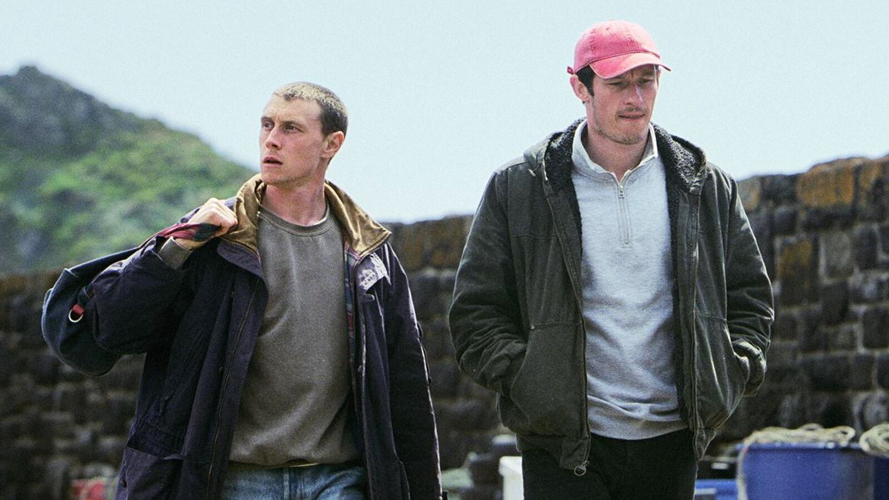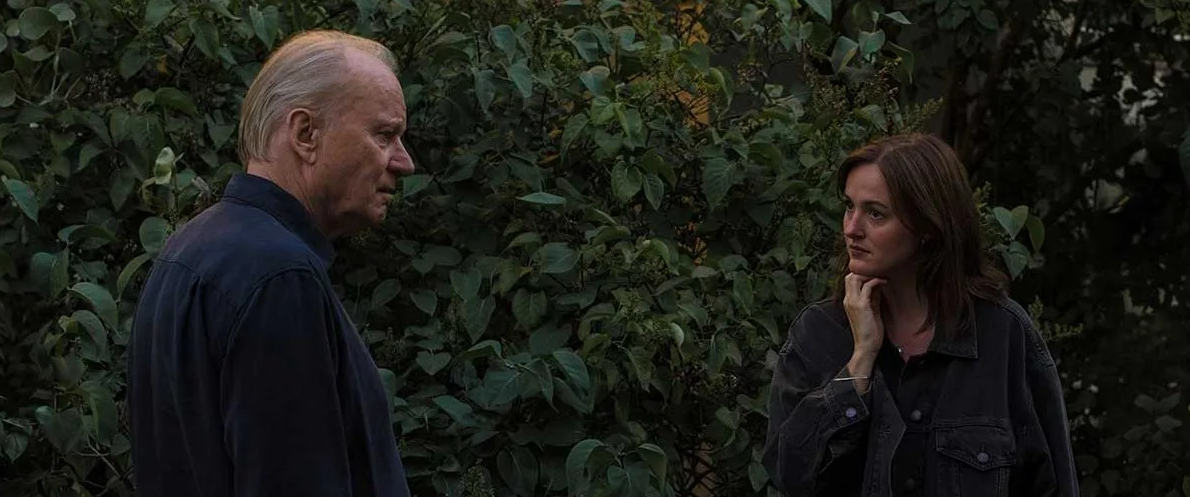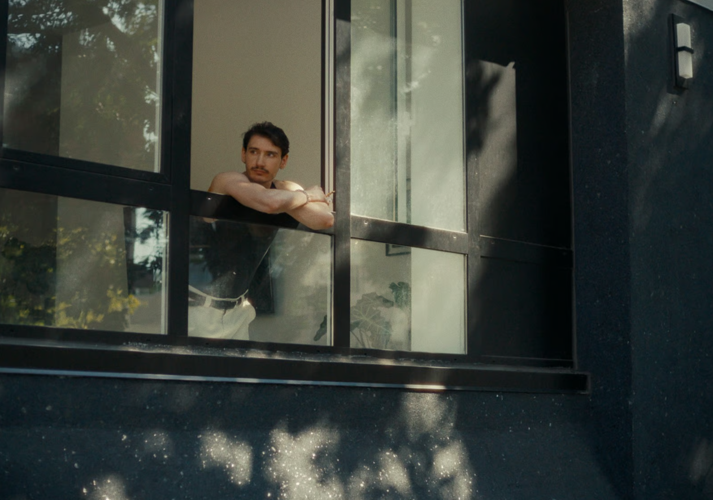
Sentimental Value
If just to take stock of what all is going on in the world at the moment, international film festivals are a good way to keep afloat, to make a list of things hopefully coming down the pike over the next year, and to stay focused on how other cultures and nations have dealt with chaos and strife. Following my recent sojourn to New York City, here’s some of the best of the fall 2025 film festivals — focused mainly on the New York Film Festival, but also including NewFest and the Brooklyn Horror Film Festival for this installment.
From 'Stiller & Meara' to 'Mister Scorsese,' here’s a sampling from this year’s NYFF, NewFest and Brooklyn Horror Film Festival — with more to come
If you saw The Worst Person in the World back in 2021, just know that director Joachim Trier and star Renate Reinsve are back — along with Elle Fanning and Stellan Skarsgård — with one of the best films I’ve seen all year, Sentimental Value (at the Belcourt Nov. 21). The film centers on two daughters of an acclaimed filmmaker on the back end of his career, and how they process a new script he’s written that aims to clear up some family history — and also obfuscate other aspects. It’s essential viewing, with so many outstanding performances that you can almost feel overwhelmed by what all it’s giving you, and I want to see it again as soon as possible.
When it (hopefully) comes to acknowledging works of art that directly address retribution and reconciliation toward those who enabled corruption and cruelty, Jafar Panahi’s Palme d’Or-winning It Was Just an Accident (at the Belcourt Nov. 14) is going to be an essential part of the discussion. With a concept that would work in any number of genres, it asks how you would react if you’d found the person who had institutionally assaulted you, and more so who you could trust to be sure. Unbelievably tense, fascinating in its revelations of how society works, morally sound in a way that shakes the viewer, and with a jaw-dropper of an ending, this is not to be missed.

Drunken Noodles
Knowing nothing about Lucio Castro’s Drunken Noodles (except having loved the writer-director’s 2019 film End of the Century), I found it to be one of the most pleasant surprises across the multiple film festivals making up this overview/catalog. It springs from both artist Sal Salandra’s bawdy embroidery and a very ’70s sense of magical liberation. Art student Adnan (Laith Khalifeh) finds himself amid a series of episodic adventures (ménage à Doordash, witnessing interpretive faun dance, sexy chronoskimming, teleporting trees) — the kind that result from having a healthy sense of curiosity and a willingness to experience mystical possibilities, however they may surface. Humorous and horny in equal measure, Drunken Noodles is the kind of queer art that (while it’s still legal) feels timeless and playful — a testament to the magical places the baser instincts can lead us.
Equally surprising was the new divorce-core classic The Love That Remains, a wry and earthy Icelandic portrait of a family navigating the aftereffects of a marriage in dissolution that is never afraid to find the humorous in the wrenching (and vice versa). It feels real, but not in the way that some family dramas aim to grind the viewer into a fine paste. Writer-director Hlynur Pálmason (Godland) is not afraid to let things get weirder as they go along (much like life), and Saga Garðarsdóttir grounds literal kitchen-sink realism and fanciful freakouts alike in a great performance that feels inhabited in a way that sweeps you along for quite a wild ride.
Cornwall’s master of the mystically uncertain Mark Jenkin is back with Rose of Nevada, an exquisite story of fishermen who haunt their own lives, displaced from what they have lived and known by the needs of their community and a boat that flouts spacetime object permanence. If you saw his last film Enys Men, you have a feel for the vibes (creepy, low-key cosmic) and the characters (adrift in something not easily qualifiable). George Mackay fits right into this way of storytelling effortlessly. Highly recommended, though some of the processes of commercial fishing can be overwhelming.

Rose of Nevada
It’s always interesting when two films share a thematic or narrative jumping-off point that, upon diverging, crafts a continuum that stretches way wider than you would have ever expected. The latest film from German director Christian Petzold, Miroirs No. 3, and the Brazilian film Only Good Things (seen at NewFest) both start from a tragic road accident and what happens when a bystander becomes a caregiver for someone who came very close to death. The former brings in art therapy, family psychodrama, malleable identities, Paula Beer at her most enthralling and the undiminishing power of Frankie Valli’s “The Night.” The latter starts with Marvin Gaye-style sexual healing and then gets very weird across the fragmenting tides of love and experience, the evolution of technology, and what it means to witness something in many permutations of the word. Both films stick in the back of your mind as visceral examples of the human instinct to care, and both are emotionally hardcore.
The complement to Petzold and Trier’s intricate family dramas are a staggering pair of films from genre stalwarts the Adams Family (writers, directors and actors Toby Poser, John Adams, Zelda Adams and Lulu Adams) and Robbie Banfitch. These are filmmakers who incorporate their actual relatives into their cinematic texts, finding a grounding in actual relationships that allows for a much deeper dive into the forking paths of existence at this time.
The Adams’ Mother of Flies (seen at the Brooklyn Horror Film Festival) is a modern folk-horror masterpiece about a family pushed to the brink by the one-two punch of cancer and the domestic health care system and driven to explore more witch-based treatment possibilities. Banfitch’s Tinsman Road (also at the BHFF), on the other hand, is about the journey that grief can drive us down, especially when Not Knowing can be just as horrifying as the secrets being kept. In both films, the magic is with the mothers, with Toby Poser and Leslie Banfitch delivering incredible performances that even those who eschew genre film would rightfully be drawn in by. As the apothecary Solveig, Poser keeps her cards held close, a matter-of-fact force of natural power who sidesteps camp and ensures her own iconic space among great movie mystics. And while Leslie Banfitch was a small-scale marvel in Robbie’s 2022 freakout The Outwaters, here she is allowed a complex and involving turn that provides an ironclad spine to the found footage mystery she presides over. Two absolute must-sees for anyone interested in the way cinema tells family stories, and essential for anyone lamenting the dearth of imagination in the current cinema.
Despite the overwhelming [gestures madly at All This] vibe of this historical moment, there’s also a lot of pleasure to be had at the movies. Imagine Jodie Foster (in fluent French) as a therapist solving a mystery with the help of her ex (Daniel Auteuil!) and her mentor (Frederick Wiseman!). All that and more in Rebecca Zlotowski’s A Private Life, a cozy-adjacent grown-up thriller with big laughs and a slightly boozy heart. Equally fun but also very spicy in today’s climate is Harry Lighton’s Pillion. Also known as the one with leather daddy Alexander Skarsgård and former Dursley Harry Melling (riffing on his stellar performance in Please Baby Please) as a parking attendant who finds liberation in subbing out. It’s the film your queer friends have been asking about — bawdy, boisterous, focused on what agency can mean, and not afraid to show a little skin. Hopefully it’ll still be legal to show it when it comes out around Valentine’s Day.
More to come …








